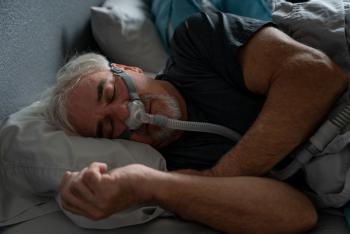Sleep apnea, a common sleep disorder characterized by interruptions in breathing during sleep...
Read More

When you wake up groggy because you didn’t get enough sleep, you may not think much more of it than that you’ll need an extra cup of coffee or two. But not getting enough sleep repeatedly can have a real, negative impact on your quality of life and long-term health.
Short-term impacts of losing sleep include feeling a “mental fog,” having a difficult time remembering, feeling sleepy during the day, moodiness and feeling tired and unmotivated to take part in activities like exercise.
The mental fog associated with sleeplessness can also put people in danger when driving. In 2019, drowsy driving caused 697 deaths, according to the National Highway Traffic Safety Administration.
But there are long-term health impacts to lost sleep, too. Losing sleep over time can increase our risk of several chronic conditions.
The amount of sleep each person needs can change over the course of their life and vary from person to person. Infants may require 12-16 hours per day, while teens may need 8-10 hours. Adults should aim for about seven to eight hours of sleep each night.
“Each adult is unique, but the general recommendation is seven to eight hours,” said John Keeley, Clinical Education Specialist at Inspira Sleep Center. “However, sleep quality is also important. Waking up frequently or snoring during the night may impact your sleep quality and leave you feeling tired the next day. These can also be signs of a possible sleep disorder.”
Not getting enough sleep has been linked to several chronic conditions. Researchers believe that while you sleep, your brain restores its cells and removes “waste.” Not getting enough restful sleep, where you move through cycles of rapid-eye movement (REM) sleep and non-REM sleep, may keep this restorative work from happening.
According to the Centers for Disease Control and Prevention (CDC), sleep loss is linked to these chronic diseases:
There are many reasons people don’t get enough or high-quality sleep, but there are tactics you can use to try to get better rest.
“Try going to bed and waking at the same time every day—even on weekends; avoiding screen time (including TV) about an hour before bed; and generally making sleep a priority,” said Keeley. “While making time to get enough sleep is imperative, making sure we are achieving deep, restorative sleep is key to boosting the immune system and lowering the risk of metabolic diseases,”
If you’re still having trouble getting some Zzz’s, learn more about Inspira’s Sleep Centers.
Inspira Health is a high reliability organization (HRO), which means safety is the top priority for patients and staff.

Sleep apnea, a common sleep disorder characterized by interruptions in breathing during sleep...
Read More
Mouth taping is a practice that promotes nasal breathing during sleep, which may improve sleep...
Read More
Waking up in the middle of the night can be frustrating, but picking up your phone or trying to...
Read More